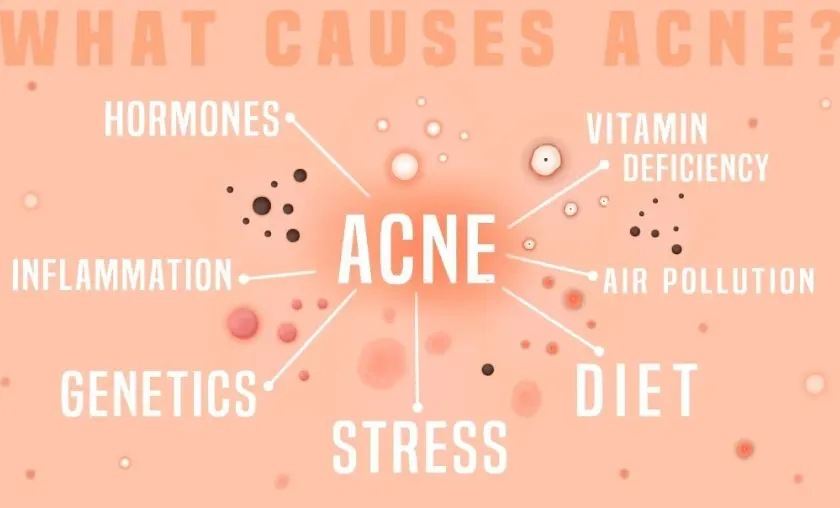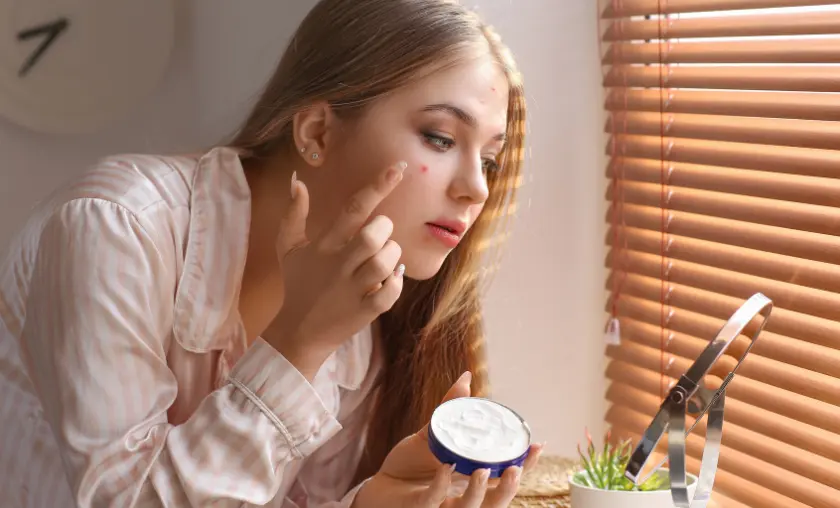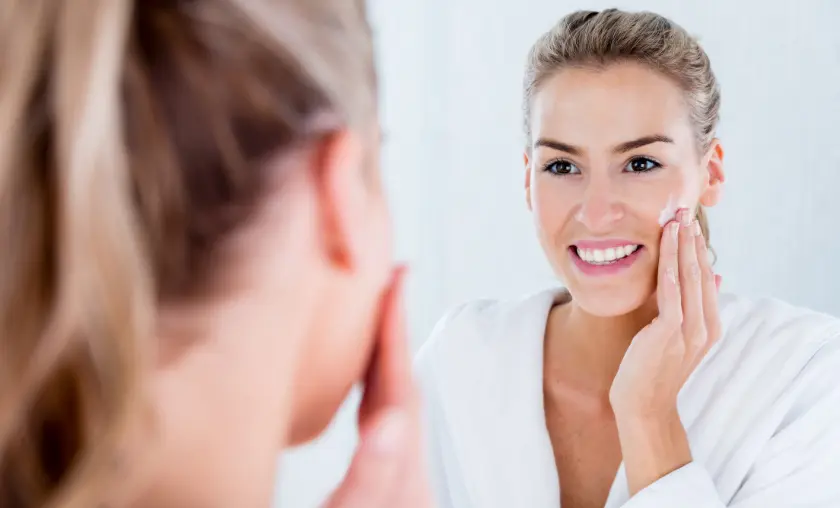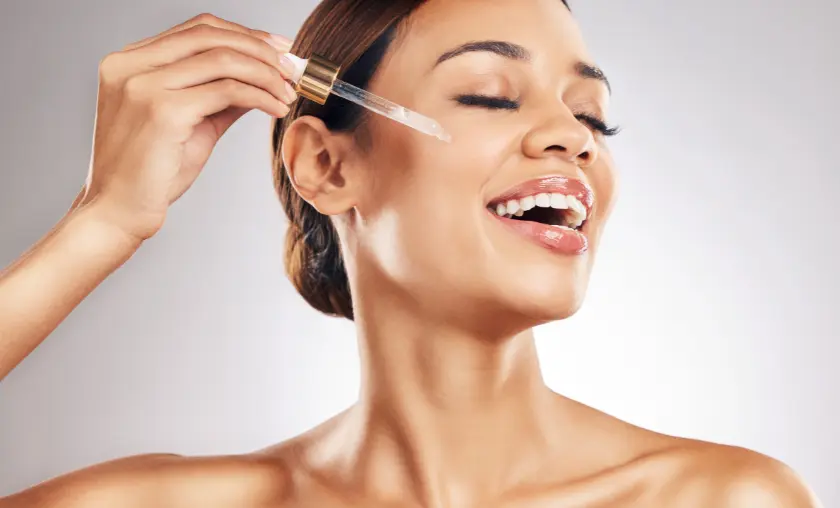Acne, a common skin condition affecting people of all ages, can be frustrating and challenging to deal with. Whether you’re a teenager battling hormonal changes or an adult struggling with persistent breakouts, finding effective ways on How to Get Rid of Acne is a top priority.
This article delves into a comprehensive guide on tackling acne, exploring various causes, types of acne, and proven strategies to achieve clearer, healthier skin. From skincare routines to lifestyle adjustments, we’ll uncover the steps you can take to bid farewell to acne and restore your self-confidence.
Understanding Acne Causes
Common Causes for Acne
Understanding acne causes is akin to unlocking the mysteries of your skin’s behavior. Acne, often influenced by a combination of factors, arises from the interplay of genetics, hormones, lifestyle, and skincare habits. Excess sebum production, clogged pores, and the proliferation of acne-causing bacteria are key contributors. Hormonal changes, such as those during puberty or menstrual cycles, can trigger flare-ups. Lifestyle choices, like diet and stress, also play a role.
By delving into these complexities, you gain insight into your skin’s unique triggers and can tailor a skincare approach that addresses the root causes. This understanding empowers you to forge a path towards clearer skin, unveiling the intricate relationship between your body, its environment, and the canvas of your complexion.
How to Get Rid of Acne
Establishing a Gentle Cleansing Routine
Establishing a gentle cleansing routine is a cornerstone in managing acne-prone skin. A delicate touch is essential for individuals dealing with acne to avoid exacerbating inflammation. Opt for a mild, non-comedogenic cleanser that effectively removes excess oil, dirt, and impurities without stripping the skin’s natural moisture barrier.
Cleansing twice daily, in the morning and evening, helps maintain a clean canvas for other acne treatments to penetrate effectively. Avoid harsh scrubbing or abrasive products, as they can worsen irritation.
The Power of Exfoliation
Unclog Pores, Remove Dead Skin Cells, & Gain a Smoother Complexion
The power of exfoliation shines as a crucial tool in the battle against acne. Exfoliating can help unclog pores, remove dead skin cells, and promote a smoother complexion. For acne-prone skin, exfoliation can prevent the accumulation of debris that can contribute to breakouts.
Choose gentle exfoliants with ingredients like salicylic acid, which can penetrate pores and remove excess oil, or glycolic acid, which promotes cell turnover. However, moderation is key, as over-exfoliating can lead to irritation and worsen acne.
Incorporating exfoliation into your skincare routine a couple of times a week can help reveal clearer, fresher skin beneath, making it a vital weapon in your acne-fighting arsenal.
Choosing the Right Products
Assembling a Tailored
Choosing the right products is akin to assembling a tailored toolkit for your skin’s unique needs. It involves carefully assessing your skin type, concerns, and goals. Opt for products that align with your specific requirements, whether it’s addressing acne, hydration, or anti-aging.
Reading ingredient labels and selecting non-comedogenic, fragrance-free options is key, especially for acne-prone skin. Patience is crucial; give products time to work before assessing their impact.
Remember, the right products aren’t just those in vogue; they’re the ones that resonate with your skin’s well-being. By curating a lineup of products suited to your individual needs, you create a potent regimen that nurtures, restores, and empowers your skin’s vitality.
Hydration & Moisturization
Skin’s Oil Production
Hydration and moisturization play a vital role in managing acne-prone skin, dispelling the myth that moisturizers exacerbate breakouts. Proper hydration actually helps balance the skin’s oil production, preventing it from overcompensating and causing more acne.
Opt for oil-free, non-comedogenic moisturizers that provide hydration without clogging pores. Hyaluronic acid-infused products are excellent choices as they hydrate effectively without adding extra oil. Consistent moisturization helps maintain the skin’s barrier, preventing moisture loss and promoting healing.
By embracing hydration and moisturization as essential steps in your routine, you create an environment where your skin can thrive, heal, and resist future breakouts with resilience.
Treating Acne Gently
In Pursuit of Clear Skin
Treating acne gently is an approach that harmonizes the pursuit of clear skin with the importance of skin health. Aggressive treatments can exacerbate inflammation and disrupt the skin’s balance. Instead, opt for products and techniques that are kind to your skin.
This includes using mild cleansers, non-drying acne treatments, and avoiding abrasive scrubs. Gentle exfoliation, consistent moisturization, and avoiding picking or squeezing blemishes are also crucial.
Remember, a patient and considerate approach to acne treatment minimizes short-term irritation and fosters long-term skin resilience. Treating acne gently is an investment in your skin’s immediate appearance and overall well-being.
Incorporating Retinoids
Promote Cell Turnover & Prevent the Clogging of Pores
Incorporating retinoids into your skincare routine can be a transformative step in managing acne. Retinoids, derivatives of vitamin A, promote cell turnover and prevent the clogging of pores, effectively reducing acne breakouts. They also help to fade post-inflammatory hyperpigmentation and improve overall skin texture.
However, introducing retinoids requires patience and a gradual approach, as they can initially cause some dryness and sensitivity. Starting with a lower concentration and using them a few times a week can help your skin acclimate.
By incorporating retinoids responsibly, you embark on a journey towards clearer and more refined skin, embracing their potent benefits while navigating the path of gradual adjustment for a radiant complexion.
Dietary & Lifestyle
Considerations
Dietary and lifestyle considerations play a significant role in managing acne from within. While external skincare is crucial, what you consume and how you care for your body can also impact your skin’s health. Opt for a balanced diet rich in fruits, vegetables, whole grains, and lean proteins.
Avoid excessive consumption of high-glycemic foods and dairy products, as they are linked to acne flare-ups in some individuals. Staying hydrated and managing stress through practices like exercise, meditation, and proper sleep can also positively influence skin health.
By recognizing the synergy between your dietary and lifestyle choices and their effect on your complexion, you embark on a holistic journey towards clearer, healthier skin from the inside out.
Seek Professional Help
When to Seek Professional Help for Acne
Knowing when to seek professional help for acne is a proactive step in achieving clear and healthy skin. Consult a dermatologist if your acne is severe, persistent, or causing emotional distress. They can provide tailored guidance, prescribe medications like topical retinoids, antibiotics, or oral contraceptives, and offer in-office treatments such as chemical peels or laser therapy. Seeking professional assistance ensures your acne management plan is expertly curated to address your needs.
Remember, taking action when your acne challenges exceed homecare efforts reflects a commitment to your skin’s well-being and empowers you with the expertise needed to regain your confidence and vitality.
Conclusion
In conclusion, managing and preventing acne involves a combination of proper skincare, a balanced diet, and healthy lifestyle choices. Regular cleansing, using non-comedogenic products, and incorporating ingredients like salicylic acid or benzoyl peroxide can help control breakouts.
Maintaining a nutritious diet, staying hydrated, managing stress, and getting enough sleep contribute to overall skin health. While there is no one-size-fits-all solution, a personalized approach that addresses individual skin types and concerns will yield the best results in the journey to achieving clear and radiant skin.
FAQ’s
What Causes Acne to Develop?
Acne is often a result of excess oil production, clogged pores, bacteria, and inflammation. Hormonal changes can also contribute to its development.
How Can I Prevent Acne From Forming?
Maintaining a consistent skincare routine that includes gentle cleansing, exfoliation, and using non-comedogenic products can help prevent acne breakouts.
Can Natural Remedies Help in Treating Acne?
Some natural ingredients like tea tree oil, witch hazel, and aloe vera have shown potential in managing mild acne. However, consult a dermatologist before relying solely on natural remedies.
How Does Diet Affect Acne?
While individual responses vary, some studies suggest that high-glycemic foods and dairy might influence acne. Maintaining a balanced diet and staying hydrated can contribute to healthier skin.
When Should I Consider Seeing a Dermatologist?
If your acne is severe, persistent, or causing emotional distress, it’s advisable to consult a dermatologist for personalized treatment options.
To Read More Similar Articles, Click Here.
Thanks for Visiting Our Website. If You Appreciate Our Work, Kindly Show Us Some Support in Our Comments Section 🙂



